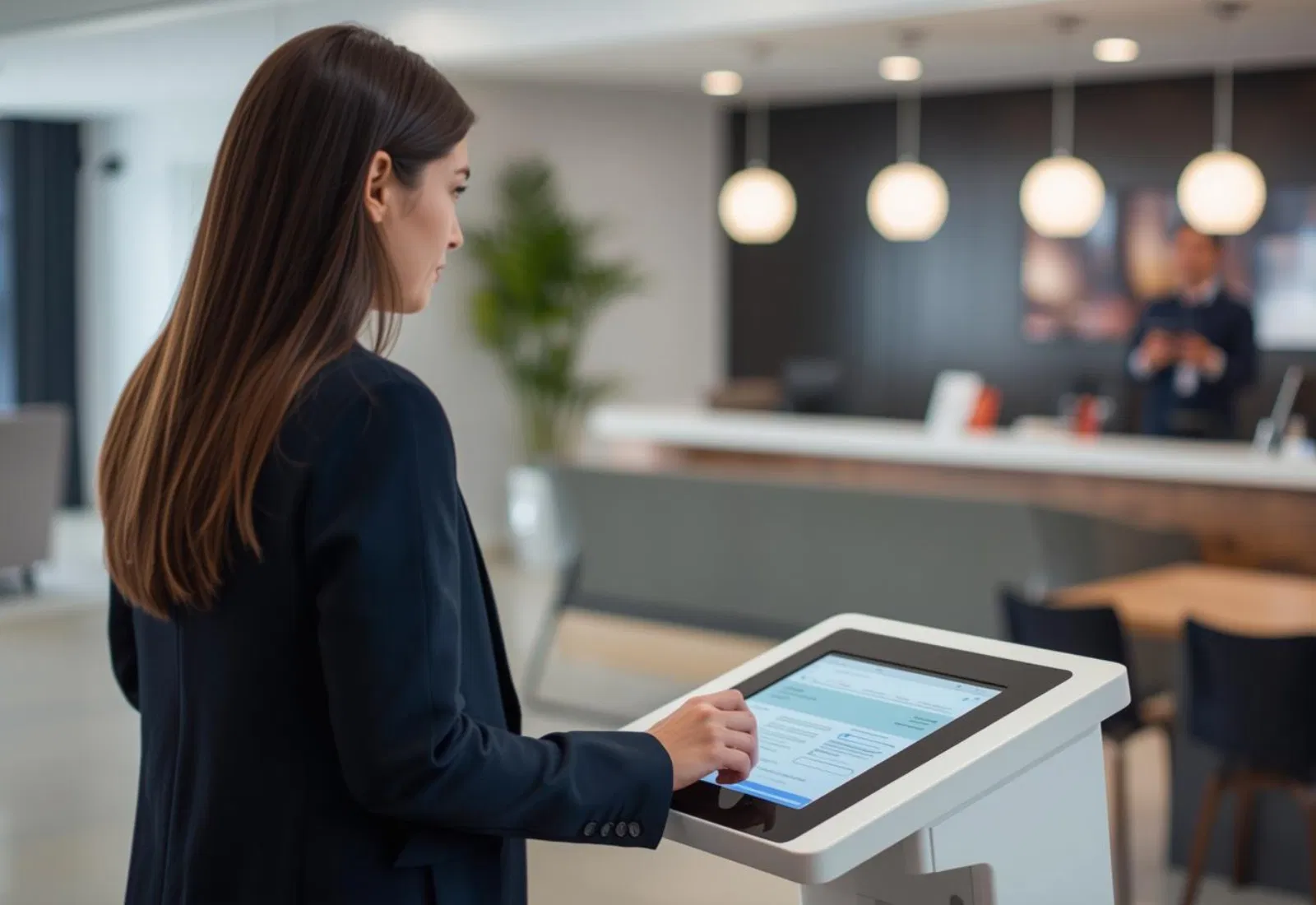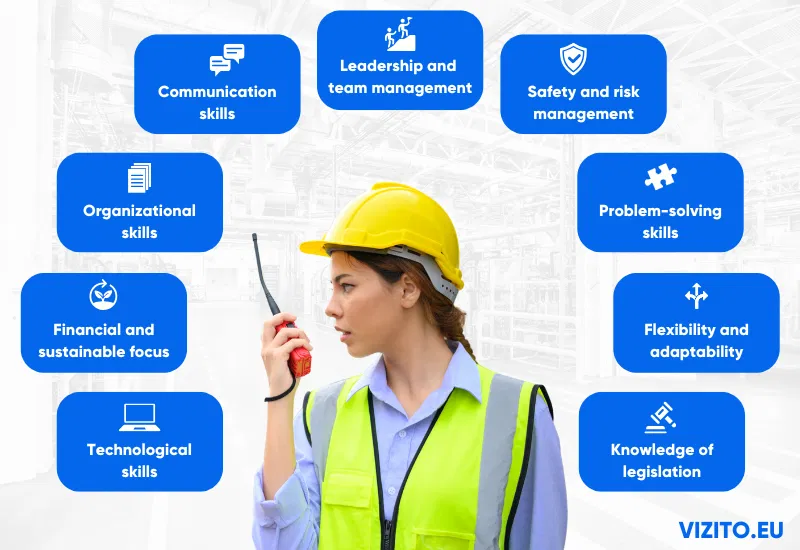
Feb 24, 2026
In this article, we will explore the essential skills modern facility managers need to excel and succeed in their field. We will provide insight into the key roles and responsibilities of facility managers, as well as explore emerging trends in facilities management. Whether you’re an aspiring facility manager aiming to enhance your resume or a seasoned professional looking to stay ahead, this article is for you.
Written by Jill - Written: August 7, 2023 - Last updated: February 27, 2025

Facility managers play a vital role in today’s workplace. They don’t just maintain buildings - they help businesses adapt, stay efficient, and support their people. Think of them as the unsung heroes who keep everything running smoothly.
The role is not simple. It takes both technical skills and strong people skills. And the job keeps changing. AI, smart building systems, and hybrid work are all reshaping facility management. Staying agile and up to date is more important than ever.
These are 9 key skills and competencies every facility manager needs to succeed in their role:
In this article, we will also cover the following topics:
The role of a facility manager now extends far beyond building upkeep. They play a key part in how an organization runs day to day. Whether you’re pursuing a career in facility management or hiring for the role, these are the skills that matter:

Effective facility management starts with strong leadership. Facility managers should be self-motivated, trustworthy, and compassionate. They need to inspire their team and lead by example. Skills in conflict resolution, delegation, and communication are also essential.
Facility managers interact with a wide variety of people daily - from maintenance staff and visitors to senior managers and vendors. They need to communicate effectively and handle concerns or complaints efficiently. Listening is also crucial. Paying close attention helps them address issues swiftly.
Organizational skills are critical for facility managers. They need to plan maintenance activities, implement procedures, and keep up with various tasks. From handling maintenance requests to managing inventory and scheduling repairs, they must stay on top of everything. Prioritizing tasks and balancing resources keeps operations running smoothly.
As we enter an era of heightened environmental consciousness, facility managers must balance financial oversight with a strong push toward sustainability. This involves managing budgets, controlling costs, and allocating resources efficiently. At the same time, sustainable initiatives, such as going paperless or implementing a recycling program, can often lead to significant cost savings over time.
Want to learn tips on how to make your workplace sustainable? Read our blog post on 9 Initiatives for an Eco-Friendly Office.
Technology keeps evolving, and facility managers are expected to keep up. Investing in the right tools improves building efficiency and cuts costs. One growing trend is using data to drive decisions.
Tools like visitor management systems show how spaces are actually being used. This helps managers optimize space, reduce energy use, and improve efficiency across the workplace.
Keeping everyone safe is one of a facility manager’s most important jobs. Their safety tasks include:
Good risk management goes beyond following the rules. It means being proactive to prevent danger before it happens.
Is your company prepared for emergencies? Check out our article on the key elements of an emergency readiness plan to ensure you’re ready for any unexpected event.
Critical thinking and problem-solving are among the most vital skills a facility manager can have. Facility managers frequently face unforeseen issues and must resolve them effectively. This means identifying the problem, gathering relevant information, developing a strategy, and testing the solution. In crisis situations, these skills are essential for managing emergencies, minimizing disruptions, and keeping operations running.
Flexible work is now the norm. Facility managers must adapt to hybrid office setups and varying office occupancy. This has become one of the key challenges in the role.
Today’s facility managers need to support both in-office and remote workers. They must keep spaces efficient, technology current, and transitions between locations smooth. Managing a hybrid office means thinking about both physical and digital space.
Facility managers must stay on top of the laws and regulations that affect their workplace. This includes health and safety rules, environmental laws, labor standards, and building codes. Every aspect of the facility - from accessibility to energy use - needs to meet legal requirements.

Today’s office buildings look very different than they did, say, 10 years ago. As a result, the world of facility management is undergoing rapid change. These are some key trends reshaping the industry:
Smart buildings are revolutionizing facility management by using Internet of Things (IoT) devices to collect real-time data. Smart thermostats optimize energy use, while sensors monitor air quality. IoT enables facility managers to make data-driven decisions that improve efficiency, reduce costs, and boost employee comfort. This technology also lets managers remotely monitor and control building systems, streamlining operations even further.
The rise of remote and hybrid work has had a significant impact on facility management. As companies adopt more flexible work arrangements, facility managers must adapt to fluctuating office occupancy and the need for adaptable spaces. This may involve redesigning workspaces, optimizing space use, and ensuring the technology infrastructure supports both in-office and remote workers.
As companies focus more on sustainability and corporate responsibility, ESG initiatives are becoming increasingly important in facility management. Facility managers must now reduce environmental impact, ensure social responsibility, and align with governance standards. This includes implementing energy-efficient solutions, promoting diversity and inclusion, and ensuring ethical business practices in facility operations.
AI and automation are changing the way facilities are managed. AI algorithms power predictive maintenance, while automated systems control lighting, heating, and cooling. These technologies streamline operations and improve efficiency.
AI-powered systems can analyze large amounts of data to predict equipment failures, optimize energy use, and even personalize the occupant experience. Automation reduces manual labor and helps facility managers focus on strategic decisions. As these technologies evolve, they will play an even bigger role in facility management.
A good facility manager combines technical know-how with strong people skills. They are responsible for far more than basic upkeep - they keep buildings safe, efficient, and running smoothly.
Key qualities include:
Facility managers ensure the smooth running of an organization’s infrastructure. They meet legal requirements and uphold health and safety standards. Their work spans both strategic and day-to-day operational levels.
Their responsibilities may include:
building maintenance
contract management
facility maintenance planning
space management
Facilities management now centers around efficiency, productivity, sustainability, and advanced technologies. Here are some tips to help facilities managers stay on top of their game:
Stay Aware of Government Regulations
It’s necessary to comply with regulations imposed at federal, state, and local levels. These regulations could be about building safety, environmental standards, or carbon emissions. Understanding and staying updated with these regulations can prevent potential legal and compliance issues, ensuring the smooth operation of the facilities.
Keep Up With the Latest Facility Technologies and Trends
Technology, especially IoT and data-driven operations, is driving innovation and performance improvement in the facilities management industry. One notable trend is the hybrid work models which all companies are now adapting to.
Optimize Physical Spaces
The impact of the pandemic has forced many organizations to rethink their office spaces. Facilities managers should optimize physical spaces to accommodate new ways of working, such as remote work and collaboration needs. This will enhance operations and improve employee satisfaction.
The role of a facility manager is broad. It combines technical skills, strategic thinking, and strong people skills. As hybrid work and sustainability become the norm, the demand for skilled facility managers will only grow. Those who stay informed and adaptable will help shape the future of the workplace.
To better manage the flow of visitors in order to improve safety and security, consider trying out a visitor management system. It simplifies the entire visitor management process and gives you ease of mind knowing that all visitors in your building are accounted for.
Try out Vizito with a 14-day free trial or book a demo to discover how Vizito can help your business.